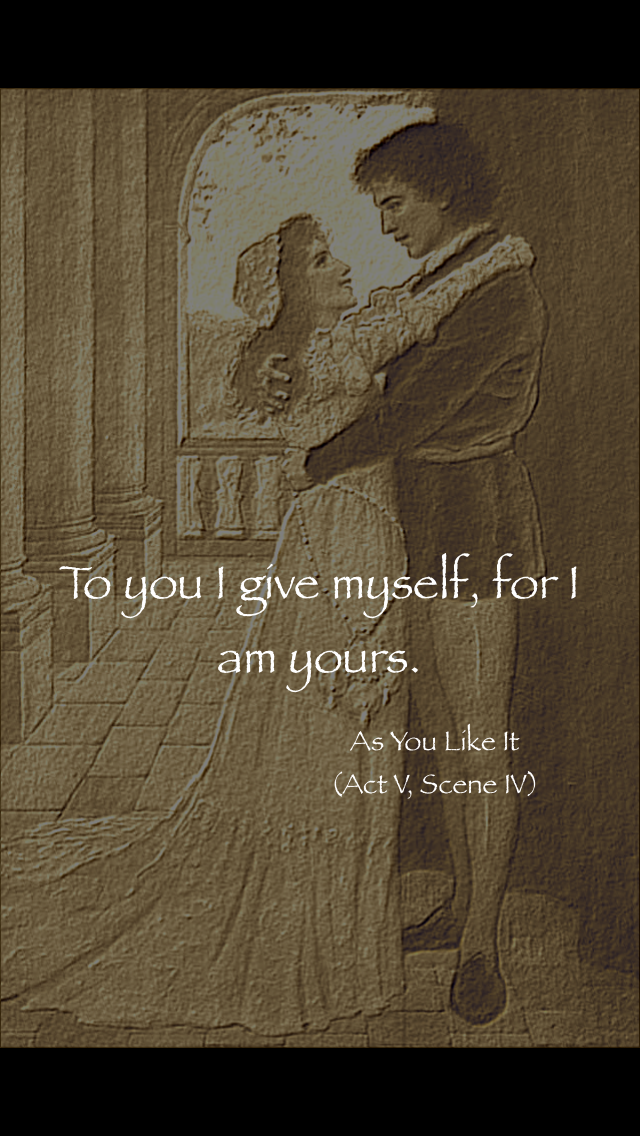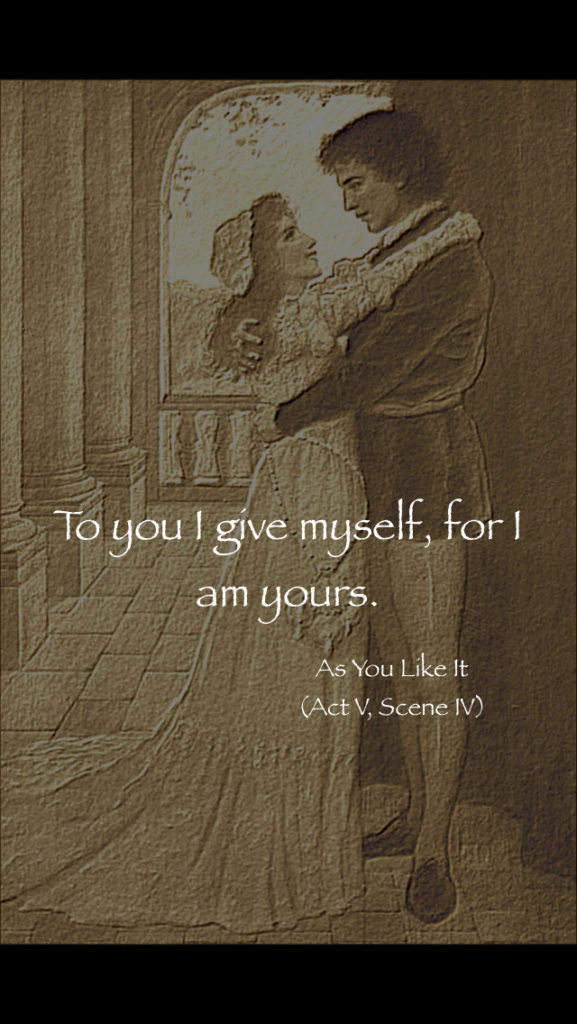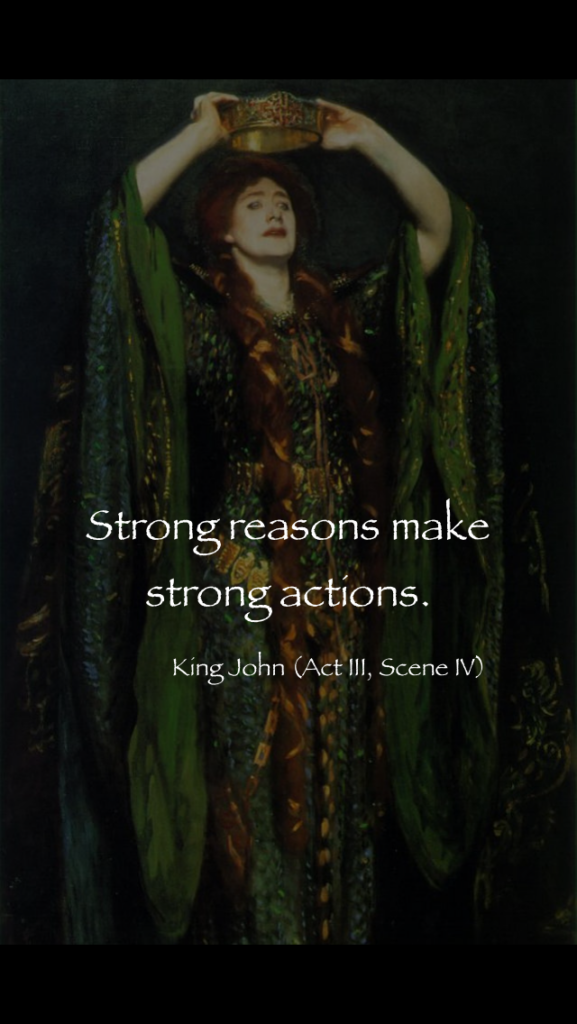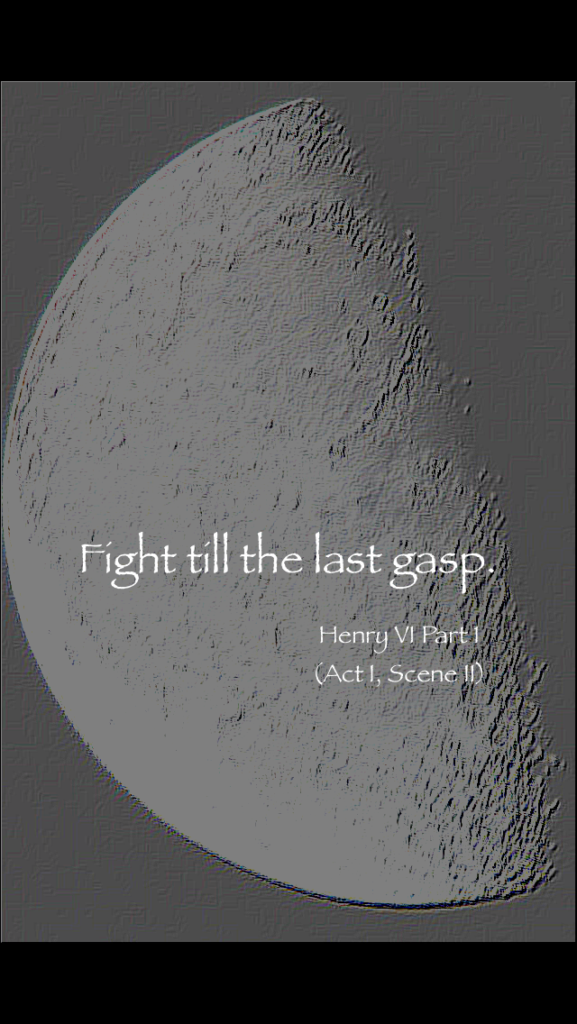There’s a scene in Dead Poet’s Society (cover your ears bardfilm) where Robin Williams gives each student a card with a snippet of poetry on it while they’re standing in a line outside. They’re supposed to shout the line, then kick a soccer ball.
Later this week I’m going to do some Shakespeare with seven year olds, and I was thinking about doing some material with them. But since I won’t have nearly the time to explain significant scenes, I thought I could do more “lines from a hat” where any student who’s willing would draw a famous quote and have to stand up and deliver it to the class.
As such, I need variety. I’m looking for lines that are short and simple enough that a 7yr old could read it, but have also got a little something behind them so they’ll sound cool when projected across the room. You know, the kind of stuff that gives us all spine tingles when we hear it.
If I get enough material I’ll bring along the longer version of each quote (for context) and depending on how much they get into it we can do longer passages. So I’m focusing at first on something short and punchy that even the most shy student could still recite.
So far on my list I’ve got:
“O for a muse of fire that would ascend the greatest heaven of invention!”
“Two households, both alike in dignity, in fair Verona where we lay our scene.”
“When shall we three meet again? In thunder, lightning or in rain?”
“If we shadows have offended, think but this and all is mended, that you have but slumbered here.”
“Friends, Romans, countrymen, lend me your ears! I come to bury Caesar, not to praise him.”
“Once more unto the breach, dear friends, once more!”
“Alas, poor Yorick! I knew him, Horatio.”
I’m avoiding the easy “To be or not to be” both because it’s too cliche, but also because they won’t have the capacity to understand the deeper meaning behind it.
What else have you got for me? We may not even get to do this project, but I feel like I missed an opportunity recently with my fourth graders and I want to have some sort of performance/recitation project in my back pocket (literally!) in case I can swing the crowd that way.






